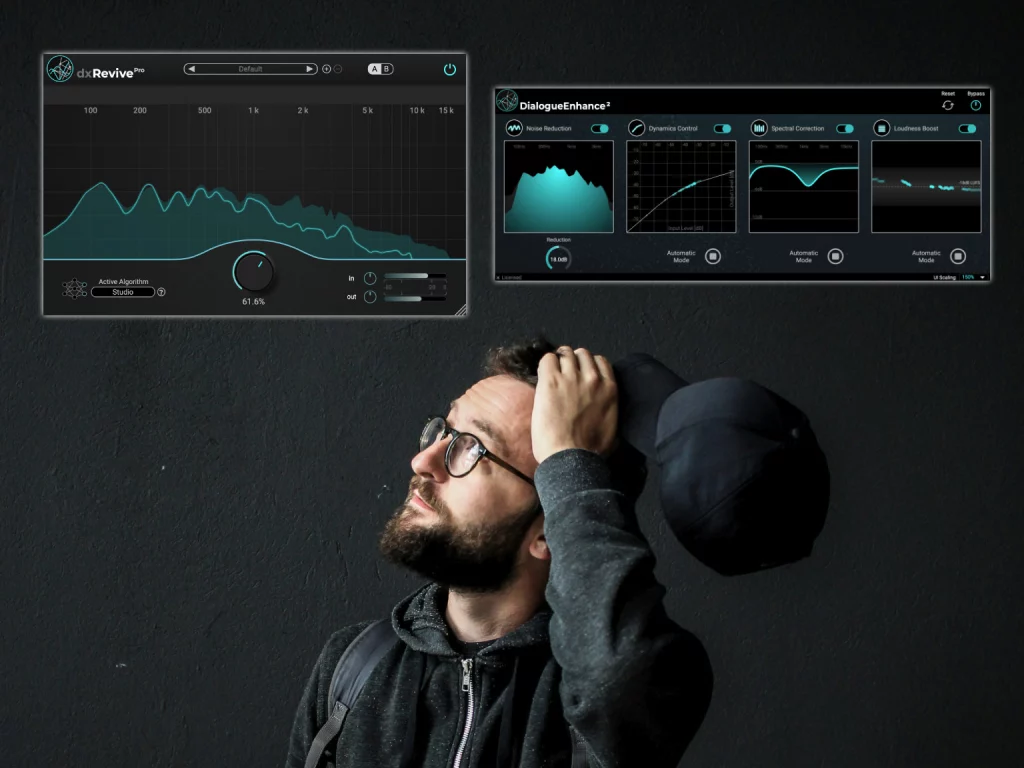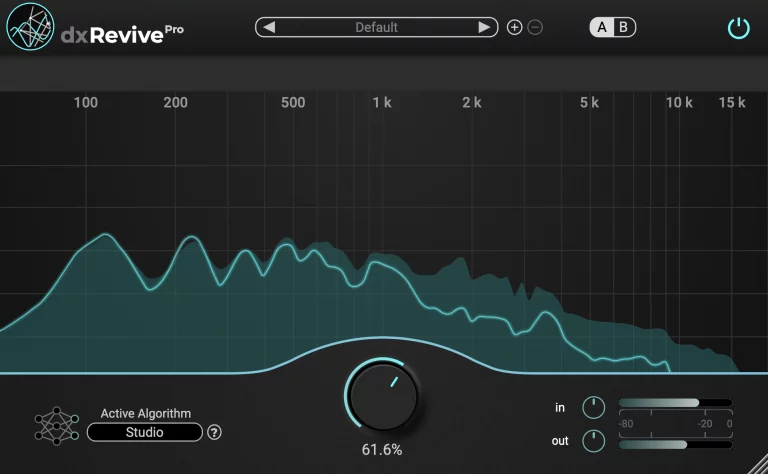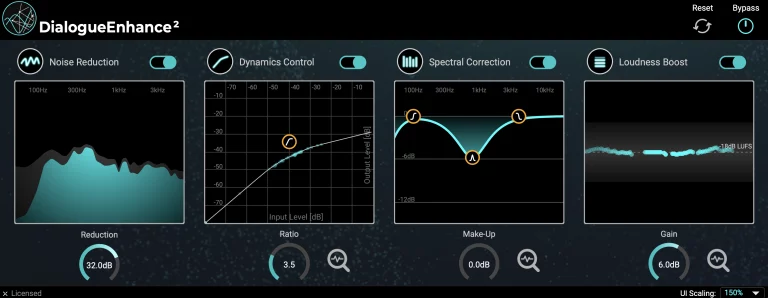Should I buy dxRevive or DialogueEnhance?
- June 27, 2024

It’s a fair question and one that we’re asked regularly.
The truth is, whilst on the face of it they may seem similar, the two plugins really are different and each one is suited to specific tasks. The good people of Production Expert clearly felt the question needed answering too; in one of their recent articles, post-production writer, Paul Maunder, explored the strengths of each plugin and the types of audio scenarios in which they’re most appropriate to use.
In short, dxRevive should be considered a speech restoration tool rather than just noise reduction. It enhances dialogue by using speech re-synthesis to restore missing frequency content, recover clipped audio, reduce reverb and eliminate codec artefacts from the likes of Skype or Zoom recordings.
On the other hand, DialogueEnhance incorporates 4 different processes into one plug-in – noise reduction, compression, spectral correction and a loudness boost function, making it ideal for overall processing of dialogue.
As Paul explains in his conclusion, dxRevive excels at restoring poor dialogue recordings, whether they suffer from severe noise or reverb, are vintage, or were made using lossy audio codecs. dxRevive Pro offers multiple algorithms to choose from, but the processing is largely automatic, aside from the ability to adjust the overall level of processing.
In contrast, DialogueEnhance is more suited for everyday dialogue processing. While it does reduce noise, it doesn’t restore missing frequency content like dxRevive. However, DialogueEnhance offers additional features such as compression, spectral correction, and a loudness boost. Each of the four processes in DialogueEnhance can be toggled on or off as needed, unlike the automatic and non-adjustable EQ and compression in dxRevive.
Check out Paul’s useful video below in which he uses real-world dialogue recordings from his personal back catalogue of work to explain why and how you might use one plugin over another.
Of course, despite these useful tools, it’s important to strive for the best possible original recording. For more help on this, check out our other articles How to Make Great Location Recordings and Best Practices for Recording Clean Dialogue Audio.



